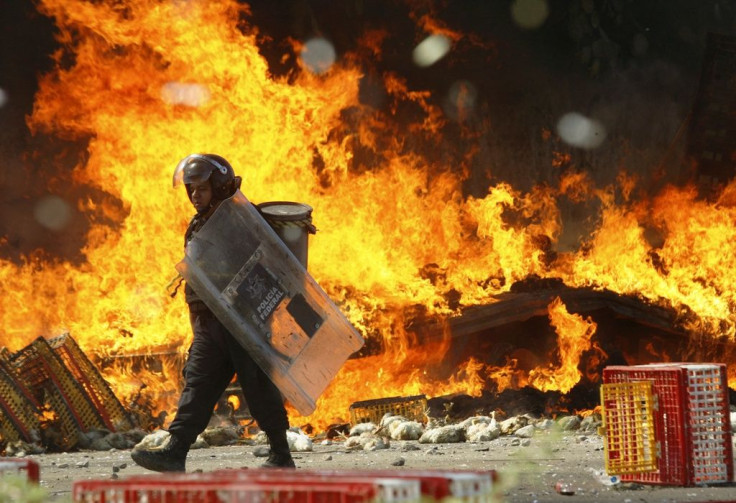Mexico Teachers’ Union Protest Leaves Several Dead

Clashes between a teachers’ trade union and police in Southwestern Mexico claimed the lives of six people Sunday, according to local officials. Demonstrators from the union are opposed to compulsory aptitude and performance tests for teachers as part of the country’s education reform and are protesting the arrest of union leaders accused of money laundering, among other charges.
The violence erupted in several municipalities of Oaxaca state, where protesters threw stones and Molotov cocktails and burned vehicles. Nochixtlan, north of the state capital also called Oaxaca, was worst-hit by Sunday's clashes. Fifty-three civilians, 41 federal police members and 14 state police agents were reportedly injured.
Enrique Galindo, the head of Mexico’s federal police, said masked individuals who were not affiliated to the National Coordinator of Education Workers, or CNTE union, were to be blamed for most of the attacks. CNTE is a dissident group of the national teachers' union.
“These kinds of radicalized protests generate violence,” he told reporters.
Earlier in the day, Mexico's federal government said that 21 police officers were wounded, three of them by gunfire. The government also said that its agents who participated in the operation were not carrying guns.
“The attacks with guns came from people outside the blockades who fired on the population and federal police,” the government said, in a statement, cited by the Associated Press.
Clashes continued late Sunday outside of Oaxaca city and in the municipalities of San Pablo Huitzo and Santiaguito, where demonstrators set ablaze federal police installations.
Late Sunday, the Interior Ministry urged the local teachers union to detach from the violent groups and commit to “responsible dialogue” to stop the violence.
© Copyright IBTimes 2025. All rights reserved.





















